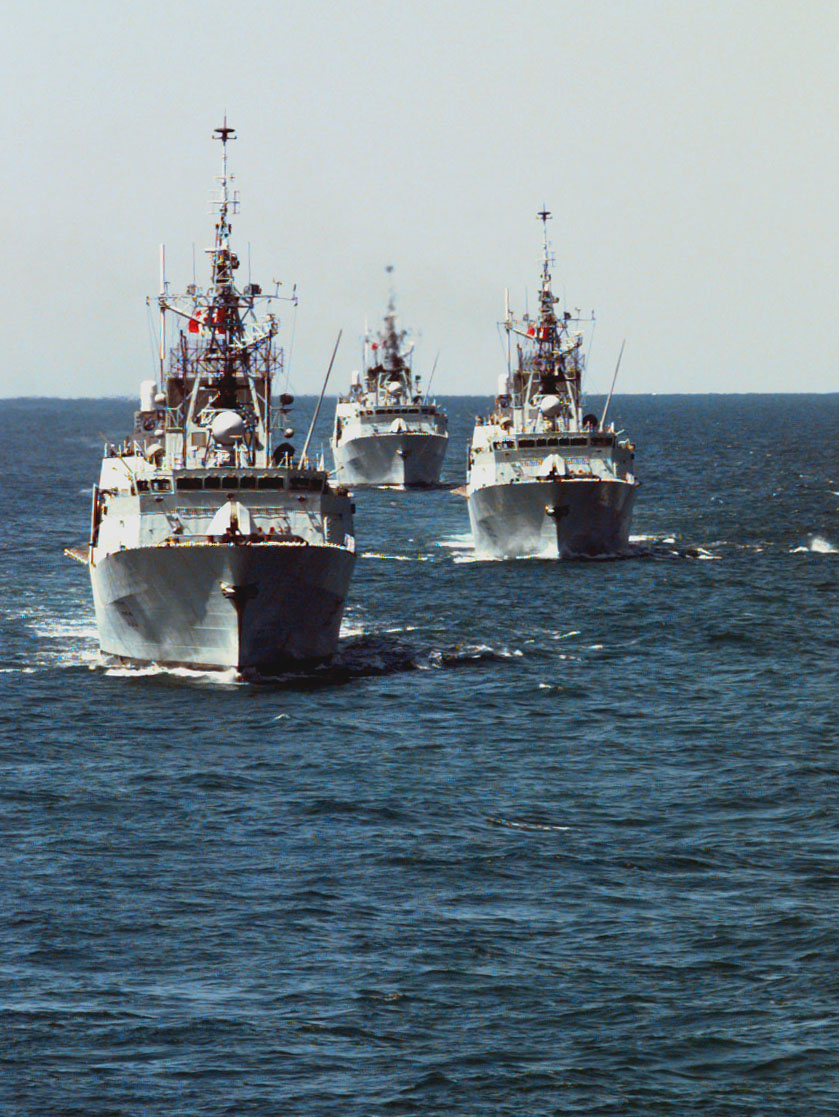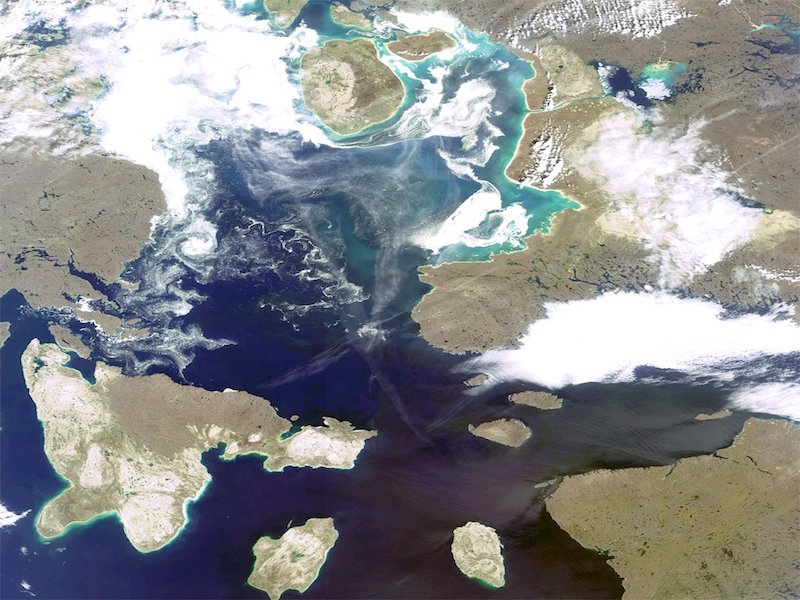PROVISION for Syrians
On April 1, 2016, the waters of the Black Sea became a little more congested as the HMCS Fredericton joined its Standing NATO Maritime Group 2 (SNMG2) partners in completing maritime security operations as part of the ongoing Operation REASSURANCE. The Canadian ship completes a task force composed of Bulgarian and Romanian ships whose duties include defense and communications exercises as well as readiness drills. Though the deployment of Canadian ships to the strategic Black Sea region is nothing new, these actions demonstrate that Canada remains committed to ensuring security in Central and Eastern Europe as questions over future involvement loom.
The Black Sea remerged as a hotspot of geopolitical maneuvering in the last two years. This notion came to prominence after the annexation of Crimea and has only been strengthened by the current strain in Russo-Turkish relations. Nonetheless, the importance of the Black Sea region to European security can be extended to include the nearby frozen conflicts in Abkhazia and Transnistria. As a result of these developments and NATO’s cooperative response, Russia responded with an increase in military presence and naval patrols. Reported incidents of flaunting military muscle may be perceived as harmless but they are attestations that both Russia and NATO are steadfast in preserving their strategic positions. The mounting sensation of regional insecurity places the current maritime security framework into question.
In the early months of 2016, Romania urged NATO to create a permanent multinational naval patrol in the Black Sea. The Romanians argued that a fortified eastern flank would be beneficial to Central and Eastern European security as it would provide protection from Russian aggression and deter subsequent acts of provocation. Media reports state that the coastal countries of Bulgaria, Romania and Turkey would be joined by NATO partners Italy, Germany and the United States in a regular flotilla that would tour the Black Sea continuously. The proposed changes and arrangements are to be discussed at the upcoming Warsaw Summit on July 8th to 9th, 2016. While the increase of NATO presence technically and psychologically benefits the states at risk, recent events demonstrate shifts in the geopolitical balance of the region directly influence the status of European security.
Multiple impediments could stand in the way of the fulfilment of a permanent NATO naval patrol. The 1936 Montreux Convention prevents non-Black Sea states from docking there for more than 21 days. Secondly, it would be an extremely expensive endeavour. As the breadth of NATO operations expand and member states struggle to meet Wales Summit financing goals, it is best if interested members continue Black Sea patrolling through indirect or nationally financed means. Nevertheless, the most significant barrier to the Romanian proposition may be the Russian reaction that a navy patrol hopes to deter. Russia has been vocal and steadfast in its complaints that NATO does not respect its privileged sphere of influence. A greater number of organized naval patrols close to Russian waters and Russian ships could result in an escalation of regional tension. This argument carries weight with proposed contributing states, such as Germany and Italy, who are reluctant to use military force to defend a NATO ally.
So where does that leave Canada? Does the possible creation of a regular naval patrol mean Canada’s days of sailing the Black Sea are over?
There have been calls for Canada to pivot away from military contributions at the center of its Central and Eastern European policy towards a focus on diplomacy. A two-pronged approach of achieving the stability required for diplomacy to be fruitful aligns well with Canada’s foreign policy and defence experience. In the case of Operation REASSURANCE, Canada’s contributions to the land and maritime task forces have been apparent since it began in April 2014. As well, Canada funds diplomatic initiatives concentrating on democratic consolidation, the development of civil society and free press in the crisis zone of Ukraine. There is no doubt that Canada has made investments in the security and development of the Black Sea region.
In the case that a permanent multinational naval force is approved at the Warsaw Summit, it is fair to say Canada will retain its role in the region. The relationships and experience cultivated in the Black Sea operations will be enduring and important in signifying NATO’s diverse solidarity. While regional countries and their strong NATO partners will remain at the core of a regular flotilla, the rotational basis of ships permits other allies to aid the force in the event of strategic changes. As well, the hesitancy of potential key members, such as Germany and Italy, dim the prospects of a permanent flotilla becoming a reality and leaving NATO to retain the current status quo.
The Black Sea has a long history of being a geopolitical battleground but it has once again rose to prominence due to the break in Russo-Ukrainian relations. Fears of Russian revanchist behavior and regional insecurity may be good reasons to argue in favour of a permanent NATO presence but the composition of such a force needs to be considered first. If key members are hesitant to commit their ships or on the brink of escalated tensions with Russia, such as Turkey, it is questionable if such an alliance would achieve desired security. Under the command of NATO, it is sensible that Canadian ships continue to patrol the Black Sea and integrate with regional partners committed to peace.




